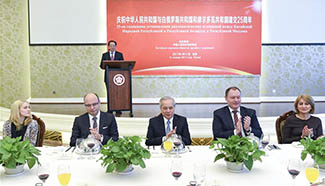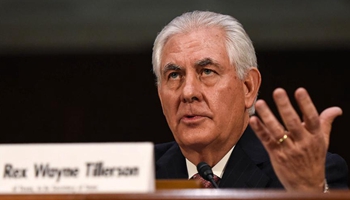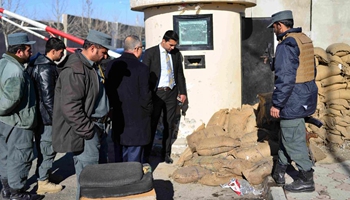BEIJING, Jan. 11 (Xinhua) -- Chinese authorities want to allocate public resources in a more efficient, transparent and fair way.
In a guideline released on Wednesday, the Communist Party of China Central Committee and State Council pledged breakthroughs in government allocation of resources to address problems such as over-reliance on administrative measures.
Categorizing the resources into three types, the guideline gave detailed plans with regard to natural, economic and non-profit state assets. The Management of natural resources should be based on property rights to compensate rights holders for use of public resources, according to the guideline.
Public natural resources include land, mineral deposits, rivers, forests, uncultivated land, sea, uninhabited islands and mudflats that are owned by the state.
Without proper regulation, such resources could easily be recklessly exploited, leading to irretrievable damage.
The guideline requires registration of all natural resources to improve the paid-use mechanism in land, water, mineral and sea resources.
The country will also explore paid use of state forests, grassland and uninhabited islands.
The state capital structure will be optimized to focus on national security and public welfare, strategically important industries, major infrastructure and businesses with core competence.
To clear obstacles for reforms of the state-owned businesses, a more fluid mechanism should be built to push for state asset securitization and allow inefficient asset to exit the market.
There are currently more than 100 state-owned enterprises (SOEs) directly regulated by central government, while many more are under administration of local authorities.
These enterprises are considered the backbone of the economy, but their inefficiency, their monopolies in many areas, and their unchecked spending have long been a source of public complaints.
In recent years, the SOEs have speeded up efforts to integrate their businesses and resources.
The State Council guideline said China will build a market-oriented exit mechanism to weed out incompetent companies and accelerate disposal of inefficient state asset.
Businesses will be encouraged to sell state asset at market price via securities and equity trading platforms, the guideline added.
For non-profit state resources such as education and healthcare, the guideline specifies that a list of such public services would be used to ensure equal and fair access to them.
China will actively introduce a competitive mechanism to build a service supply system led by the government, supported by social forces and supervised by the public, the guideline pledged.
Under the precondition of supporting a national unified market, China will encourage regions to explore innovative measures in urbanization, SOEs, regional financial markets, property taxes, health and elderly care.
To simplify access to public resources, China will integrate public resource platforms and foster a unified exchange system, the guideline said.
The move is the latest of government efforts to streamline administration and let the market play a bigger role in resource allocation.
Related:
Xi calls for building competitive human resource system
BEIJING, May 6 (Xinhua) -- Chinese President Xi Jinping has called for reform in a bid to build a globally competitive human resource system.
Xi made the remarks in an instruction for a seminar convened Friday on implementing a guideline on reform of the human resource system. Full story
China to test one-stop public resource portal
BEIJING, Dec. 1 (Xinhua) -- To simplify access to public resources, a unified public resource website in China will provide market entities with a one-stop service on a trial basis.
Information on bidding for construction projects, trading of land-use rights, government procurement and state-owned property rights transactions will all be available from the same source, Yang Shaoliang of the State Information Center said. Full story











